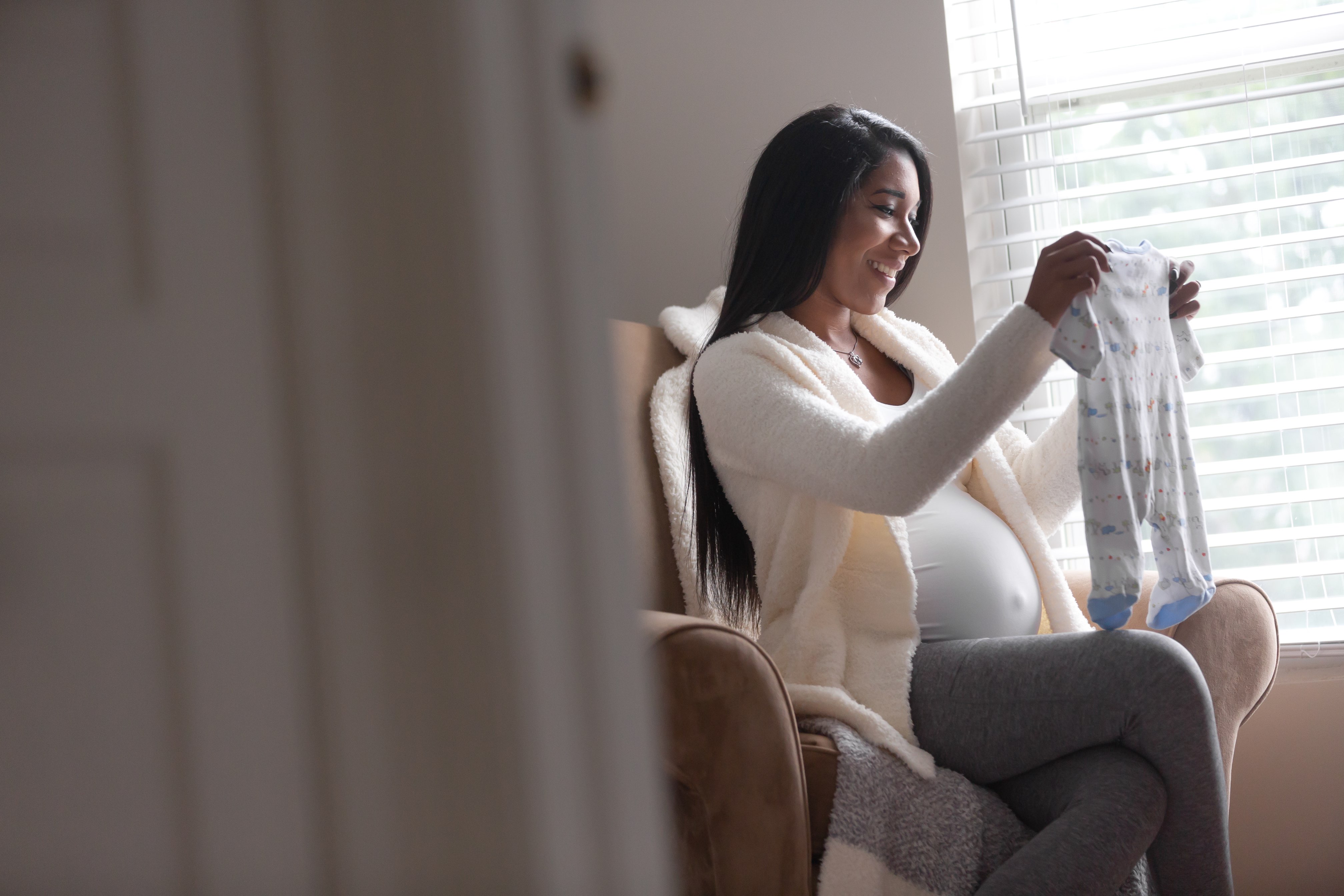Preparing for a new baby can be overwhelming, so it’s important to focus on nesting and organization. Implement practical tips for creating a comfortable and functional space for your newborn while reducing stress and chaos.
Efficient organization and thoughtful nesting can make the transition into parenthood smoother and more enjoyable, ensuring that you are fully prepared for the arrival of your little one. From decluttering and creating a nursery to establishing a feeding and changing station, these tips will help you feel more confident and ready for the exciting journey ahead.
By taking proactive steps to prepare your home and life for your new addition, you can alleviate some of the stress and focus on the joy of welcoming your baby into your family.

Credit: takingcarababies.com
Creating A Safe And Comfortable Space
Creating a safe and comfortable space for your newborn is essential for their well-being and your peace of mind. From choosing the right furniture to arranging the room for maximum functionality and prioritizing safety considerations, every detail matters in preparing the nursery for your little one.
Choosing The Right Furniture
Selecting the appropriate nursery furniture is the first step in creating a cozy and practical space for your baby. Opt for a sturdy crib with adjustable mattress height to accommodate your growing child. Consider a comfortable rocking chair for late-night feedings to provide a soothing environment for both you and your baby.
Arranging The Room For Maximum Functionality
Organizing the nursery layout to maximize space and functionality is crucial. Place the crib near the door to easily access your baby, and ensure ample space for a changing table and storage for essentials. Utilize a dresser with drawers to keep baby clothes and supplies neatly organized.
Safety Considerations For The Nursery
- Anchor and secure furniture to prevent tipping hazards
- Keep cords and small objects out of reach
- Use plug covers and baby gates as needed
- Opt for non-toxic paint and materials

Credit: takingcarababies.com
Organizing Essential Baby Gear
When preparing for a new baby, organizing essential baby gear is key to ensuring a smooth transition into parenthood. Setting up specific areas for changing, clothing, and play can ease the stress of caring for a newborn. Here are some practical tips for organizing essential baby gear to help you get your home ready for your little one’s arrival.
Setting Up A Changing Station
Designating a specific area in your home for diaper changes is essential for organization and efficiency. Consider placing a changing table with storage shelves, or simply using a changing pad on top of a dresser. Keep all necessary supplies handy, including diapers, wipes, diaper rash cream, and a changing pad cover. This setup will make diaper changes quicker and more convenient.
Storing And Accessorizing Baby Clothes
Storing and accessorizing baby clothes can streamline the process of dressing your little one. Use labeled bins or drawers to sort clothing by size, type, and season. Invest in space-saving hangers and dividers to keep the closet organized. Additionally, consider using drawer organizers for socks, hats, and accessories, making it easy to find what you need quickly.
Organizing Baby Toys And Books
Organizing baby toys and books can help create a stimulating and clutter-free environment for your little one. Use storage bins, baskets, and shelves to categorize and store toys by type and age appropriateness. Consider rotating toys to keep playtime fresh and engaging. For books, display them on low shelves or in a small bookcase to encourage independent exploration and reading habits.
Stocking Up On Supplies
Preparing for the arrival of your little one involves more than just picking out the perfect crib and adorable onesies. As a new parent, you’ll want to make sure you have all the essential supplies stocked up and organized before your baby arrives. From diapering and bathing to feeding and medication, being well-prepared will help ease the transition into parenthood. Here are some practical tips for stocking up on supplies to ensure you have everything you need.
Essential Items For Diapering And Bathing
Diapers: When it comes to diapers, it’s a good idea to stock up on different sizes. Newborns go through about 10 to 12 diapers a day, so having a good supply will save you from late-night runs to the store. Consider buying a mix of disposable and cloth diapers, depending on your preferences.
Wipes: Alongside diapers, baby wipes are a must-have item for diaper changes. Look for wipes that are gentle on your baby’s sensitive skin and consider buying them in bulk, as you’ll go through these quickly.
Baby Cream or Ointment: To prevent diaper rash and keep your baby’s skin soft and protected, invest in a good quality diaper ointment or cream. Look for products that are hypoallergenic and free from harsh chemicals.
Bathing Essentials: Bath time is not only essential for cleanliness but also for bonding with your baby. Stock up on baby-friendly soap or body wash, shampoo, and a soft towel or two. Additionally, consider getting a baby bathtub or a bath sponge to make bath time easier and safer.
Feeding Essentials For Newborns
Bottles and Nipples: If you plan on bottle-feeding your baby, it’s important to have enough bottles and nipples on hand. Get a variety of sizes and shapes to see what works best for your little one. Don’t forget a bottlebrush for easy cleaning!
Breastfeeding Supplies: For breastfeeding moms, stocking up on essentials will help you navigate those early weeks. Nursing bras, breast pads, nipple cream, and a breast pump if you plan to express milk are all essentials to consider.
Burp Cloths: Whether you’re breastfeeding or bottle-feeding, burp cloths are an absolute must-have. Keep a good supply of these handy to protect your clothes from unexpected spit-ups and messes.
Stocking The Medicine Cabinet
Infant Fever and Pain Relief: It’s always a good idea to have infant acetaminophen or ibuprofen on hand to ease fever or pain. Make sure to consult your pediatrician on the appropriate dosage and keep a chart handy to track the medication.
Thermometer: A reliable digital thermometer is an essential tool for a new parent. Look for one that is specifically designed for babies and make sure you know how to use it correctly to get accurate readings.
Nasal Aspirator: Babies can easily get congested, and a nasal aspirator will come in handy for clearing their tiny noses. Opt for a nasal aspirator that is gentle and easy to use, ensuring your little one can breathe comfortably.
First Aid Kit: Having a well-stocked first aid kit is crucial for handling minor injuries and accidents. Include items like band-aids, gauze pads, antiseptic ointment, and adhesive tape. Keep the kit easily accessible but out of reach of curious little hands.
Preparing For Baby’s Arrival
As your due date approaches, it’s important to start preparing for your baby’s arrival to ensure a smooth and stress-free transition into parenthood. From creating a birth plan to packing a hospital bag and arranging for newborn care classes, there are several practical steps you can take to feel confident and organized. In this blog post, we’ll delve into these essential aspects of preparing for your baby’s arrival.
Creating A Birth Plan
A birth plan is a document that outlines your preferences for labor, delivery, and postpartum care. It helps you communicate your needs and desires to your healthcare provider and ensures that everyone is on the same page regarding your childbirth experience. When creating a birth plan, consider including the following:
- Your preferred labor and delivery positions
- Whether you want pain medication or are opting for alternative pain relief methods
- Whether you want continuous fetal monitoring or intermittent monitoring
- Who you would like to be present during labor and delivery
- Your preferences for newborn procedures, such as delayed cord clamping or immediate skin-to-skin contact
Remember to discuss your birth plan with your healthcare provider during prenatal visits to ensure that it aligns with your medical history and any specific conditions you may have. Having a well-thought-out birth plan can empower you and help you have a more positive birth experience.
Packing A Hospital Bag
Packing a well-stocked hospital bag is essential for a stress-free hospital stay during labor and after delivery. Here’s a checklist of items to consider including:
- Comfortable clothing for labor, such as a loose-fitting nightgown or a favorite T-shirt
- Snacks and drinks to keep you energized during labor
- Toiletries, including a toothbrush, toothpaste, and hairbrush
- Relevant documents, such as your ID, insurance information, and any necessary medical records
- A going-home outfit for you and your newborn
- Nursing bras and breast pads, if you plan to breastfeed
- Important contact numbers
- A camera or smartphone to capture those precious first moments
By preparing your hospital bag in advance, you can focus on your labor and delivery without worrying about essential items you may need during your stay.
Arranging For Newborn Care Classes
Attending newborn care classes can equip you with the knowledge and skills needed to care for your newborn. These classes cover a range of topics, such as diapering, bathing, breastfeeding, and soothing techniques. They provide an opportunity to ask questions, learn from experienced instructors, and connect with other expectant parents.
To arrange for newborn care classes, you can contact your healthcare provider or local hospitals, birthing centers, or community centers. It’s advisable to schedule these classes well in advance of your due date to ensure availability. By attending these classes, you’ll gain valuable insights and feel more confident in your ability to care for your baby once they arrive.
Managing Time And Priorities
Discover practical tips for managing time and priorities while preparing for a baby, ensuring efficient nesting and organization. From creating schedules to setting priorities, these strategies will help you stay on top of tasks and make the most of your time during this exciting phase of life.
Establishing A Routine
Creating a routine can bring structure and predictability to your days as you prepare for the arrival of your little one. By establishing a consistent schedule, you can better manage your time and prioritize tasks effectively. Start by identifying the essential activities that need to be accomplished regularly, such as meal preparation, cleaning, and self-care. For instance:
- Set specific times for waking up and going to bed. This will help regulate your sleep patterns and ensure you get enough rest.
- Allocate dedicated blocks of time for household chores, such as laundry, grocery shopping, and tidying up. Prioritizing these tasks will help maintain a clean and organized space.
- Include breaks throughout the day to relax and rejuvenate. Taking care of yourself is equally important as you prepare to care for a newborn.
By establishing a routine and sticking to it, you can reduce stress, increase productivity, and create a sense of stability during this busy and exciting time.
Setting Up A Baby-friendly Schedule
Once your little one arrives, having a baby-friendly schedule in place can make daily life more manageable for both you and your baby. The key is to establish a pattern that aligns with your baby’s natural rhythms and needs. Consider these tips:
- Observe your baby’s sleeping and feeding patterns. Infants thrive on consistency, so try to create a schedule that accommodates their needs.
- Designate specific times for feeding, naptime, and playtime. This will help your baby feel secure and well-cared for.
- Gradually introduce a bedtime routine that includes soothing activities like a warm bath, gentle massage, and reading a book.
Remember, every baby is unique, and it may take some time to establish a schedule that works best for your family. Be flexible and make adjustments as needed, ensuring that the schedule remains aligned with your baby’s changing developmental stages.
Finding Support And Help
Preparing for a baby can be a monumental task, and it’s okay to ask for support and assistance. Seeking help from loved ones, friends, or even professional services can alleviate the overwhelming sense of responsibility. Here are some suggestions:
- Reach out to family and friends for emotional support, guidance, and practical help when you need it. Whether it’s a listening ear or someone to lend a hand with household chores, sharing the load can make a significant difference.
- Consider joining parenting groups or attending prenatal classes. These communities provide valuable resources, advice, and an opportunity to connect with other expecting parents.
- Research local services that offer assistance with tasks like childcare, housekeeping, or meal delivery. Having extra help can free up valuable time for you to focus on self-care and bonding with your baby.
Remember, there is no shame in asking for help – it shows strength and a willingness to prioritize your well-being and the well-being of your baby.

Credit: takingcarababies.com
Frequently Asked Questions For Preparing For A Baby: Practical Tips For Nesting And Organization
What Essentials Do Babies Need For Nesting?
Babies need a crib, diapers, clothing, feeding supplies, and a car seat for nesting. These essentials will ensure your baby’s comfort and safety.
When Should You Start Nesting For Baby?
Start nesting for your baby in the second trimester to avoid last-minute stress. Organize the nursery, wash baby clothes, and gather essential items gradually. Consideration of logistics, such as assembling furniture and setting up the crib, can also begin during this time.
How Can I Be Organised With My Baby?
To be organized with your baby, establish routines for feeding, nap times, and playtime. Keep essentials like diapers, wipes, and clothes easily accessible. Stay ahead by planning meals, making to-do lists, and keeping a schedule. Utilize storage solutions to keep things tidy and minimize clutter.
Prioritize self-care to ensure you have the energy to stay organized.
When Should I Start Organizing My Baby?
Start organizing your baby’s belongings as soon as possible. It is important to establish a system and keep things organized from the beginning. This will make it easier to find what you need and maintain a tidy space for your little one.
Conclusion
Creating a nurturing and organized space for your baby is crucial for a smooth transition. By implementing practical tips for nesting and organization, you can ensure that your baby’s arrival is stress-free. From decluttering and organizing essential items to creating functional storage solutions, these strategies will help you stay prepared and focused during this special time.
Embrace the joy of preparing for your bundle of joy with these helpful tips for nesting and organization.











